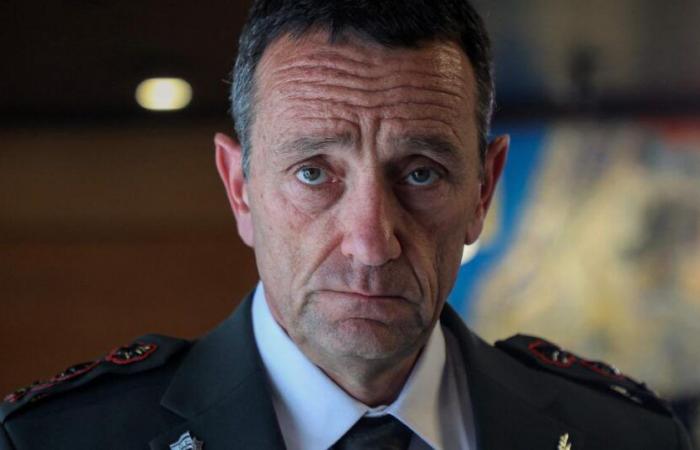Russia, in 2026. The country is ravaged by famine and, at the borders, Western armies are pushing back Russians who are trying to take the path of exile. Vladimir Putin is in hospital, dying. When the film begins, nurses are changing his soiled sheets. “The camera lingers, well, not with relish, but for a very long time, on the president’s excrement,” describes the South German newspaper.
Showing a dictator at the end of his life, when his body is failing him, is a theme that has already been addressed many times, in literature and in cinema. But the scene described comes from a very strange cinematographic object, underlines The Daily Mirror, another German daily:
“What is treacherous in this first scene is Putin’s face, which was reconstructed using artificial intelligence. For a moment, the illusion is perfect.”
Welcome to Putin, the latest film from Polish filmmaker Patryk Vega. The feature film was released in Germany and Austria on January 9, then in Poland on January 10. In France, it remains unpublished.
“But what is it, then?”
On this side of Europe, the name Patryk Vega probably doesn’t mean much. But, in his country, this 48-year-old man, with a shaved head and tattoos up to his neck, is a star. A screenwriter, director and producer who is a hit at the box office but whose productions are shunned by most of the media. “He is theenfant terrible* of Polish cinema”, euphemizes it Frankfurter Rundschau, a Frankfurt daily. He is the specialist in “trash” and the “rudeness”, summarized more abruptly Onet, a Polish online media outlet.
In Poland, Putin flopped. The conservative Polish daily Republic notes that “less than 40,000 people” saw the film on the weekend of its release, when Patryk Vega’s previous feature had attracted 200,000. “If it was not my duty as a journalist, I would have left the cinema after five minutes, but I sacrificed myself to warn the other spectators,” praises the criticOnet.
In Germany, it’s a different matter. The film, if it did not make a splash at the box office, was watched with curiosity by the major newspapers of the country, who are debating to determine what was put before their eyes. Like the Süddeutsche Zeitung:
“It must nevertheless be clarified that Putin is not a biopic in the strict sense of the term. Nor in the broad sense. Nor in any sense, for that matter. But what is it, then?”
A bold idea
The feature film, a B-movie like Patrick Vega signed to the channel, follows the journey of the Russian leader since his childhood on the streets of Leningrad (today Saint Petersburg), when he begins to commit the crime fist in contact with street gangs. Between exaggeration, caricature and frank invention, he “takes great liberties” with the facts, warns the South German newspaper. And is not afraid to show his character in demeaning situations, from his opening scene.
“Patryk Vega’s spooky biography of Putin is anything but refined. Subtlety is not one of the qualities of this controversial director, recognizes the Daily Mirror. But exposing the Russian autocrat using deepfake technology still had to be thought about.”
From this perspective, the film becomes “more than a polemical interpretation of the life of a leader”, develops the Frankfurter Allgemeine Zeitung, another German daily:
-“It is in some ways an attempt at murder by cinema.”
Copy Putin to unmask him
Interviewed by the Frankfurter Rundschau, Patryk Vega says he wanted to intertwine biopic and look at current times, with the war in Ukraine as a backdrop. “I would describe the genre I serve as live history [‘histoire en direct’]”, he adds, explaining that this is why it seemed impossible to work with an actor in makeup: “Everyone knows Putin’s face.”
Patryk Vega therefore decided to entrust the role to Slawomir Sobala – a Polish actor used to parodying the Russian leader – but by modifying his face. Existing deepfake technology quickly showed its limits : “It is easy to create a deepfake for the smartphone, for example a Donald Trump with a certain facial expression, a laugh, in a one-minute video”, explains the filmmaker again. But shooting a film of almost two hours, intended to be projected on the big screen, requires a completely different level of finesse in the rendering of facial expressions. With the help of a Californian studio, the filmmaker took two years to program a tailor-made artificial intelligence, called “Exis AI”.
This quest for resemblance should, for Patryk Vega, serve to better unmask Putin: to get into his head, to reveal his inner workings, his weaknesses too. He could have looked for these in the sexual life of the master of the Kremlin. He prefers to find them in the fear of finitude that, according to him, the leader’s botoxed face hides. “Putin is a coward and has a panic fear of death,” he asserts to the Austrian daily The standard.
The wisdom of the turnip
The portrait he paints is as cruel as it is bloated. Putin can thus look at oneself “like a pamphlet which uses obscenity to reveal a personality impossible to approach otherwise, analyze the Frankfurter Allgemeine Zeitung. A form of revenge porn [‘porno de vengeance’] whose pornography does not reside in the act itself but in its crudeness, in the fact that everything is shown in a pale light.”
The Frankfurter Rundschau continues on the same note:
“Putin is a meme movie. It has dozens of memorable images that will have a long life on the Internet.”
But does it work? “In Putinfacts, inventions and delusions blend into a politically dubious mixture. But humiliation is perhaps the last weapon of the powerless. decorating The Daily Mirror. Unfortunately, satire ends up becoming “completely inoperative” by dint of increasing ever more in the one-upmanship, judges the South German Zeitung. “It’s all just a damp squib, it’s all just noise, it’s all not serious and there’s nothing really revealing about it. Putin shouldn’t get off so easily in the movies.”
Other German-speaking newspapers, more strangely, searched in Putin keys to understanding the Russian leader and dealing with him. “We can say that this film is a turnip”, concedes Frankfurter Allgemeine Zeitung. But it at least has the merit of reminding us of the extent to which Vladimir Putin “is unpredictable for a Western political world which always relies on rationality”, adds the Frankfurt daily. And so, concludes the Standard, the film could constitute a “belle source d’inspiration” for our leaders – if they needed a Polish turnip to remind themselves that Putin only understands the balance of power.
*In French in the text.






